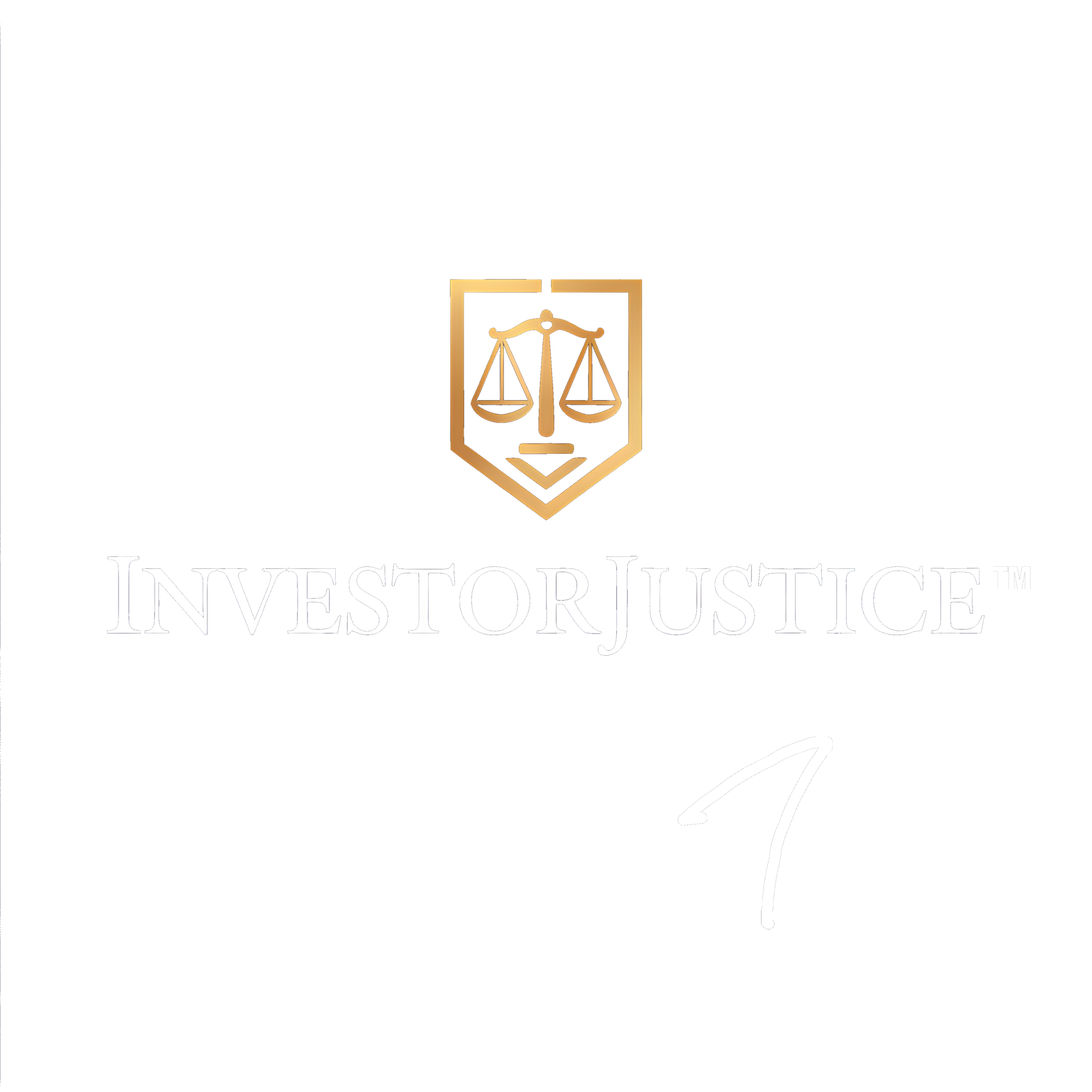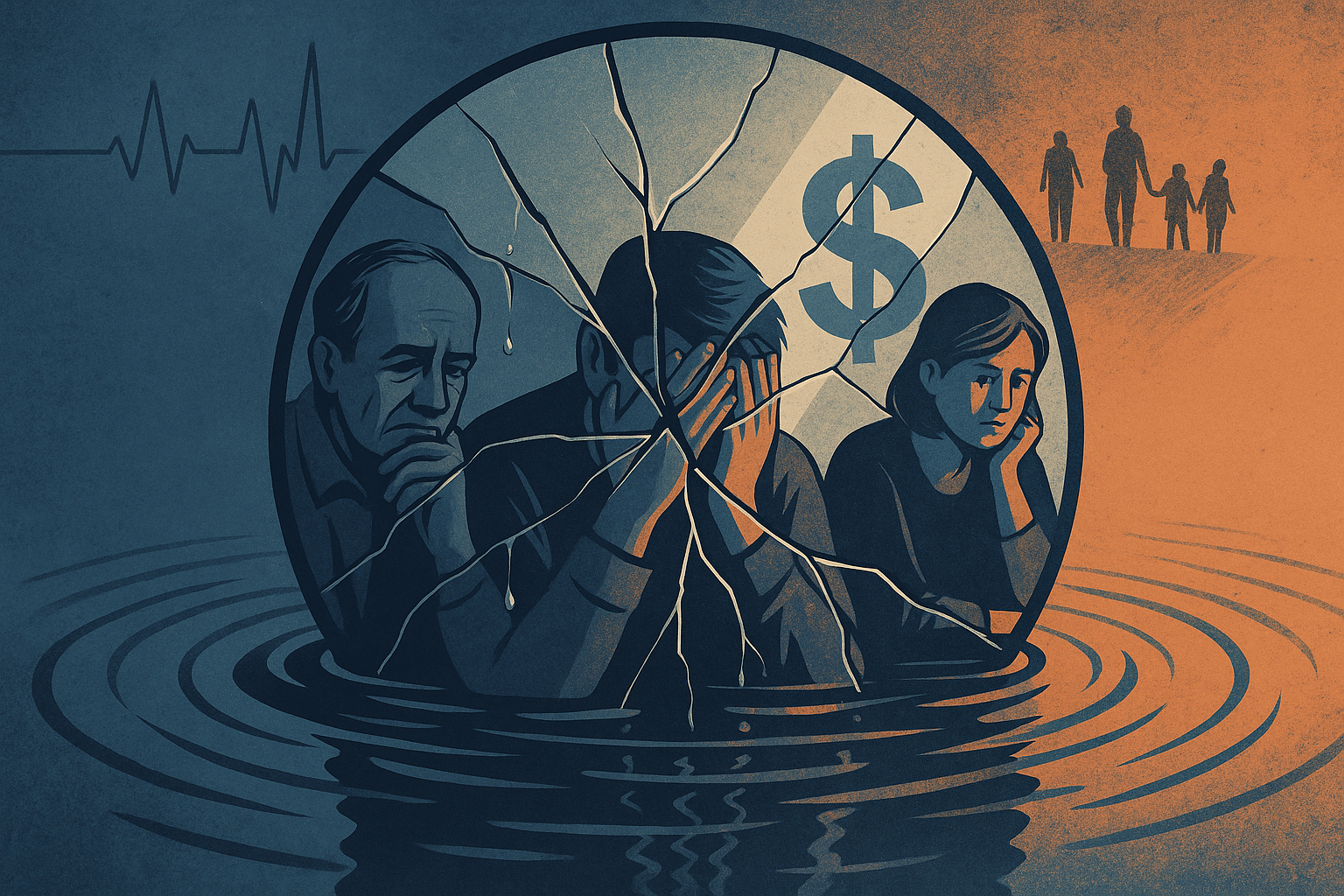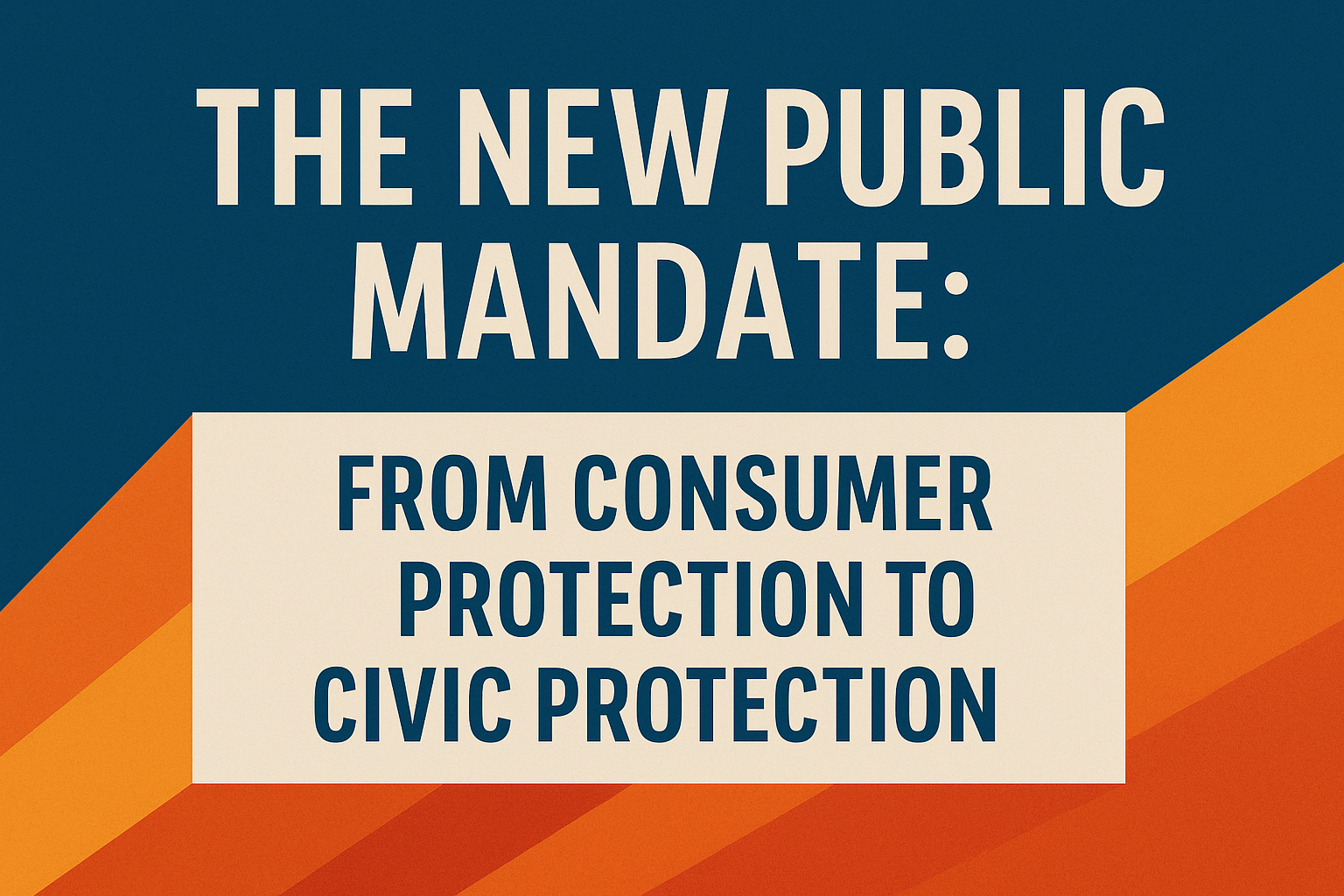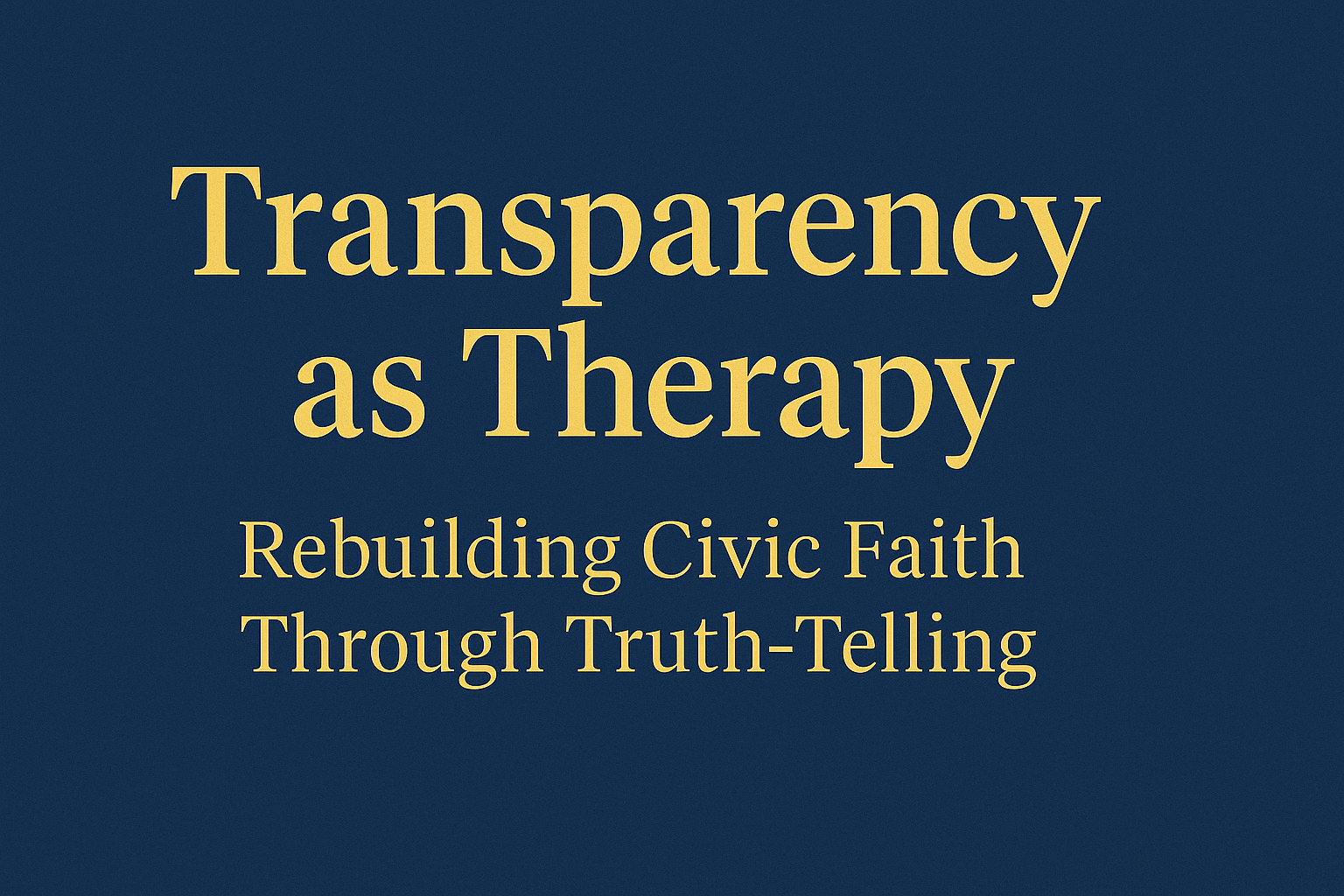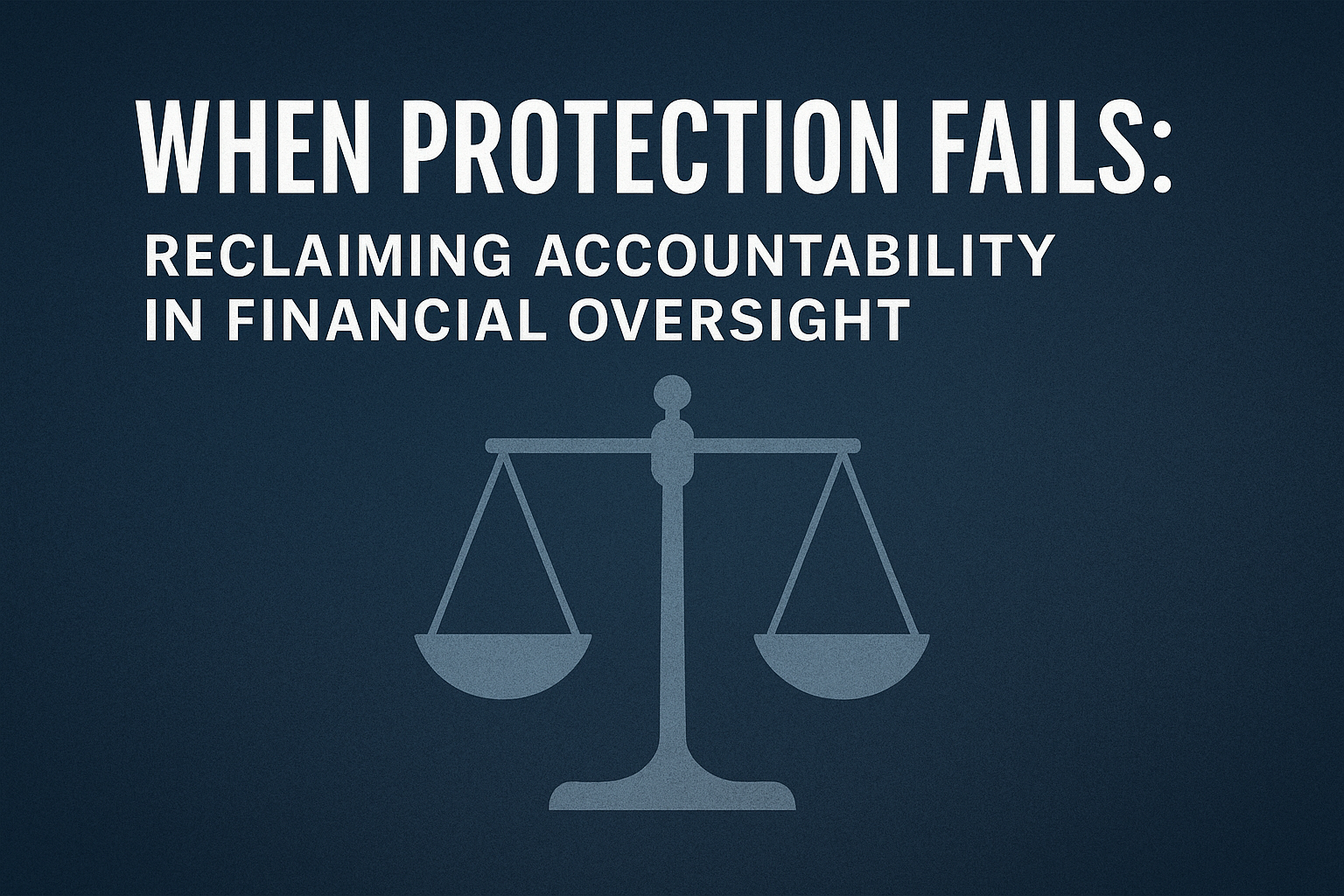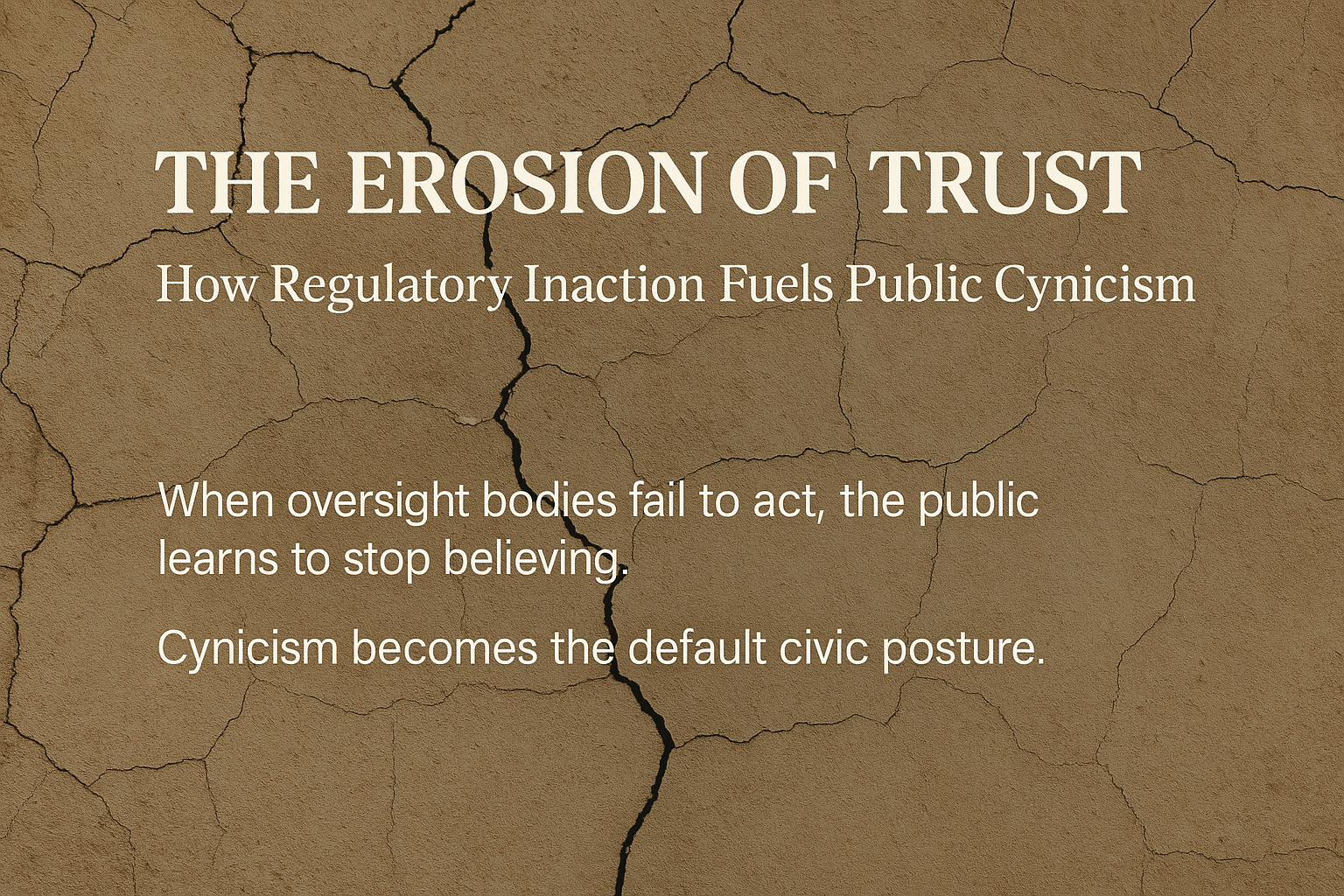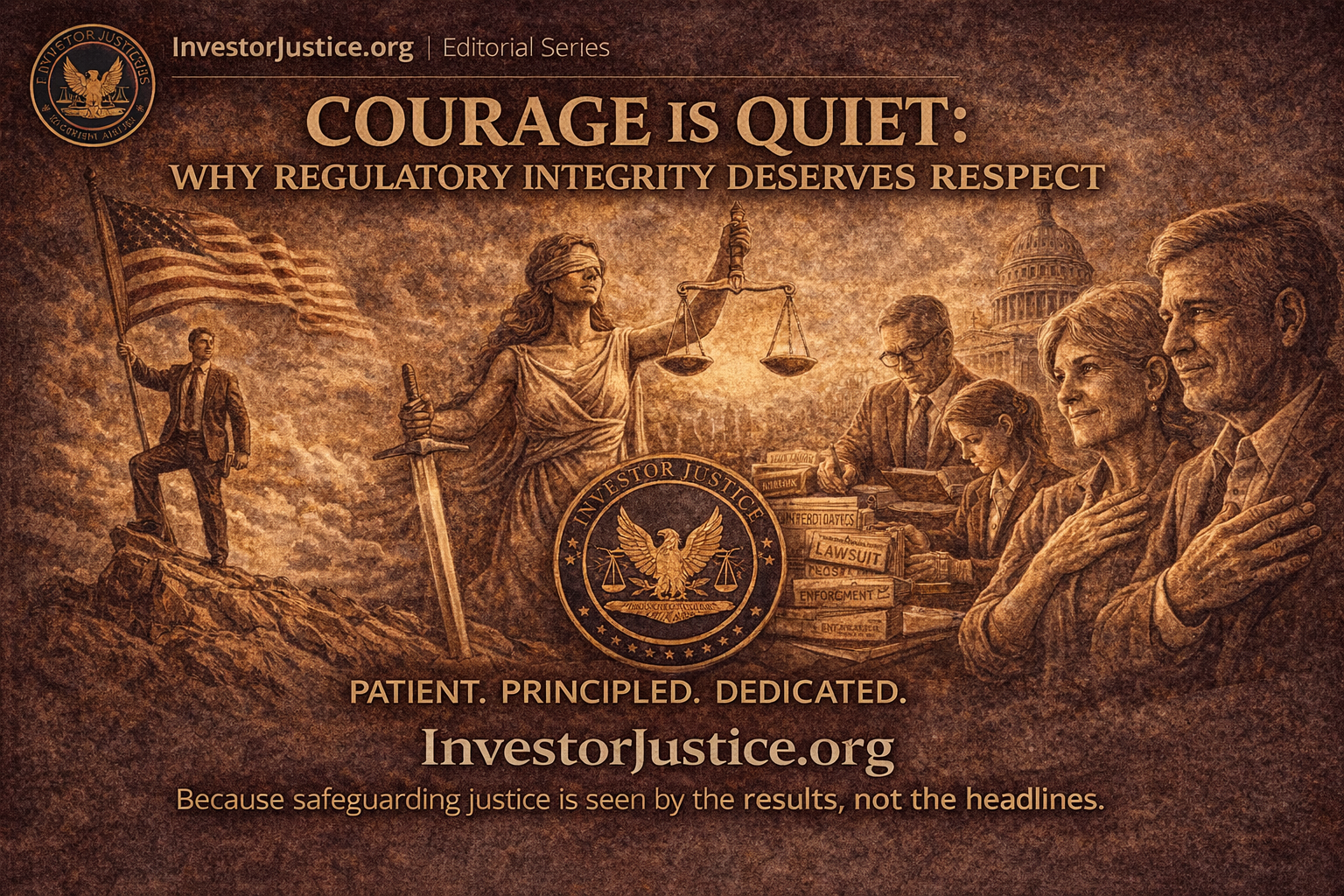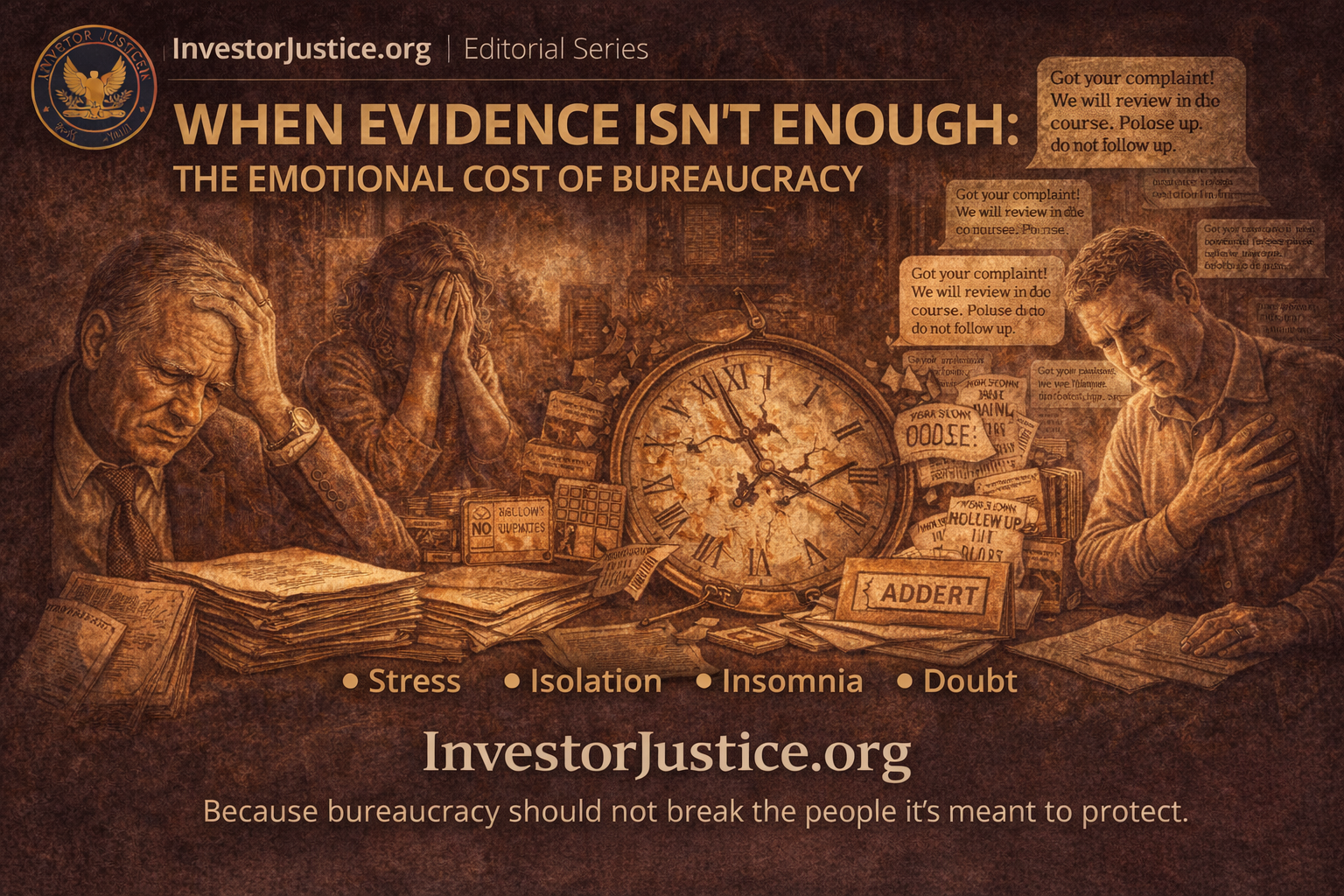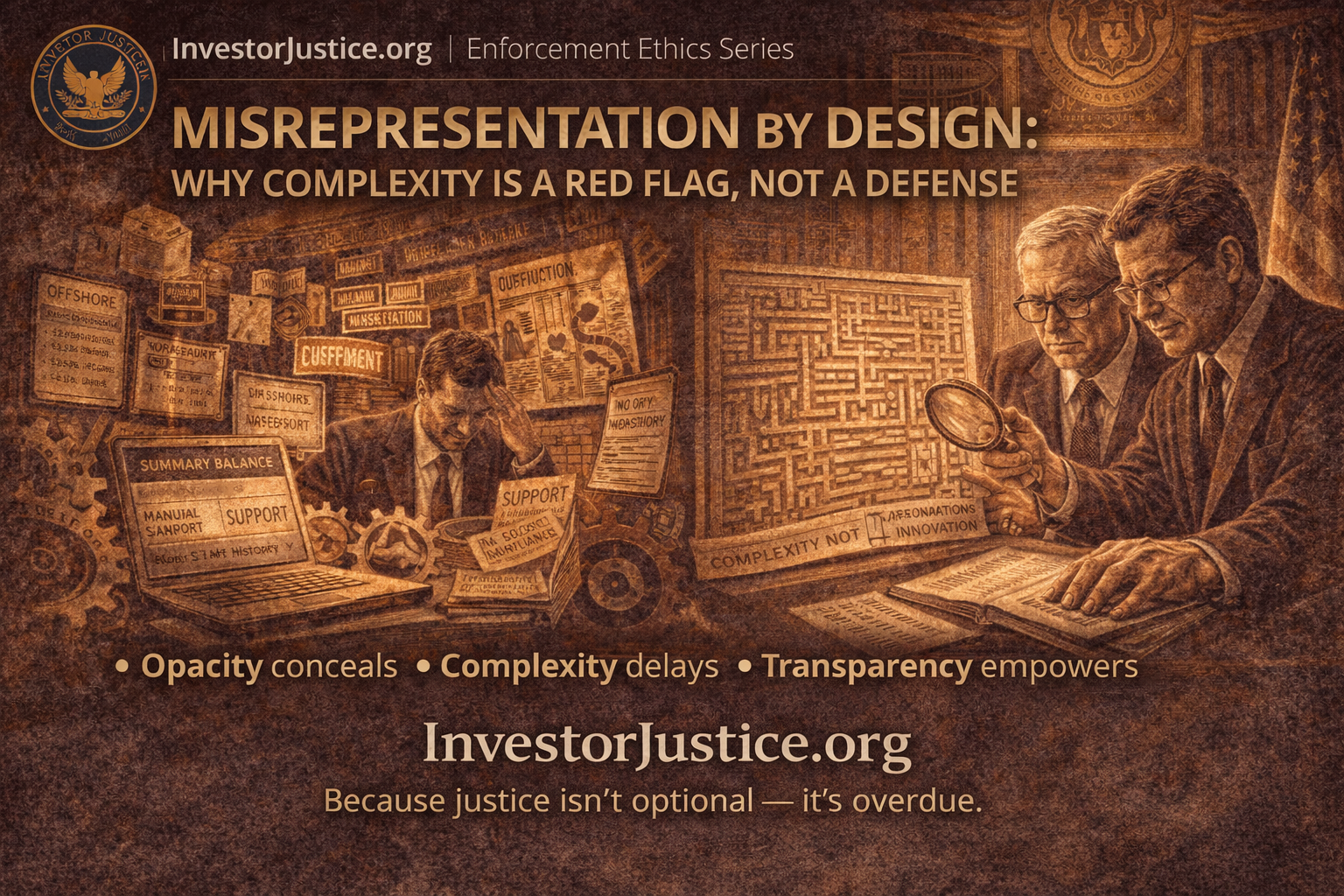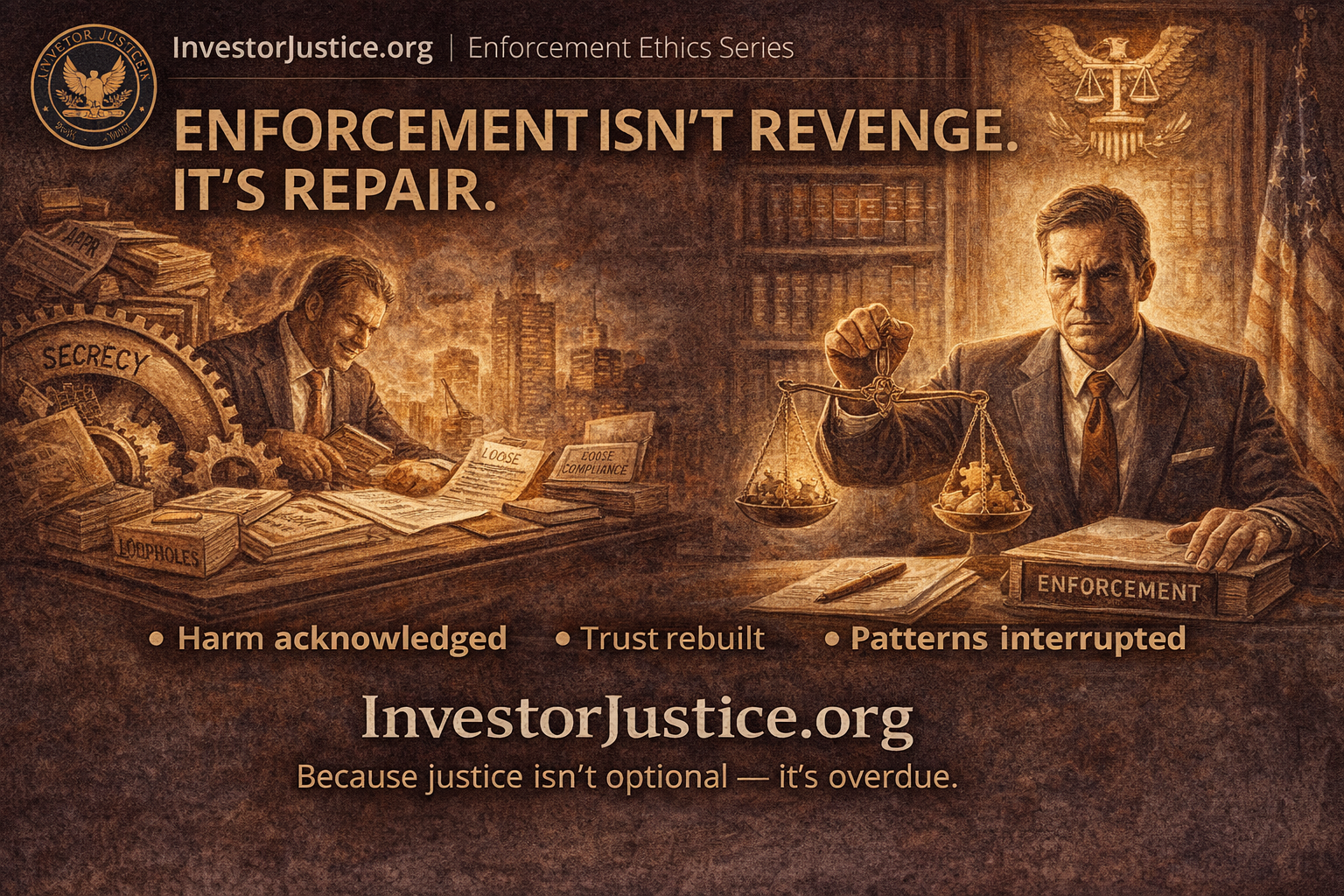Table of Contents
InvestorJustice.org | Civic Relevance Series
When an investor is misled, the harm does not end with a balance sheet. It starts there but it radiates outward, silently, persistently, into every corner of life.
Misrepresentation is not just a financial crime. It is an act of social violence; one that erodes health, stability, and trust in equal measure.
The Visible Damage
When a platform or institution deceives its users, especially those who are retirement-age or financially vulnerable, the visible damage is the loss of savings.
But that’s only the first fracture. The deeper break comes in what follows: sleepless nights, health decline, and the slow unraveling of dignity that comes when people realize the system designed to protect them is looking the other way.
Numbers are tidy. Lives are not.
A five, six or even seven figure loss on a ledger can translate into:
- The end of a secure home.
- A heart condition made worse by stress.
- Estranged family members after months of financial strain.
- Isolation, depression, and the loss of purpose that comes from being dismissed or ignored by the very regulators meant to help.
The Hidden Collapse
Misrepresentation, when left unaddressed, becomes a contagion of disbelief.
Each unresolved case tells other investors a simple message: “You’re on your own.”
Each delay by a regulator whispers: “Accountability is optional.”
Each silence from a company says: “Your truth is negotiable.”
And when enough people hear those messages, the social contract itself begins to fray.
Trust, the invisible infrastructure of markets, law, and civic life, cannot be rebuilt with words alone. It must be demonstrated through visible acts of integrity, restitution, and transparency.
The Cascading Consequences
- Health: Chronic stress, heart conditions, and burnout are common among victims of financial deception. Studies show that prolonged financial uncertainty has physical effects comparable to long-term trauma.
- Family: Financial loss often brings tension, mistrust, and fragmentation within families, especially when retirement savings or intergenerational funds are at stake.
- Community: When institutions fail, communities lose faith not just in companies, but in governance itself. The next time a regulator speaks, fewer people listen.
- Democracy: Economic justice and democratic participation are inseparable. When citizens no longer believe that wrongdoing has consequences, the legitimacy of law itself weakens.
The Moral Arithmetic of Delay
Each month that a regulator or company delays resolution adds weight to the scale, not just of loss, but of moral responsibility.
Delays are not neutral. They are a form of erosion; of time, of hope, of health.
When evidence is ignored or concealed, that erosion becomes systemic complicity.
Transparency is not a courtesy. It is a moral duty.
Why InvestorJustice.org Exists
InvestorJustice.org was founded to make these invisible costs visible.
Every unresolved case is not just about dollars — it is about the social and psychological debt created when truth is withheld.
Every piece of transparency infrastructure we build is designed to prevent the next wave of preventable harm and to remind regulators and companies alike that delay is not an option when human lives are at stake.
When we expose misrepresentation, we are not just protecting investors, we are protecting trust itself.
“Every unresolved case is a stress test for trust. The longer it stays unresolved, the more the system fails.”
